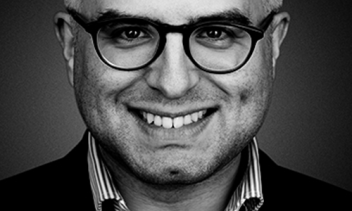What comes to mind when you think of rationality?
Perhaps your mind might go to a philosopher in a study, figuring out the mysteries of the universe. The famous painting of Jerome in his study, surrounded by lions and books, or perhaps the professor in debate. Of course, these share some characteristics, which says something of how we sometimes think of rationality. All are men, solitary, wealthy, deep in contemplation, immersed in one form of life while removed from another. Or perhaps your mind goes to Iyov, trying in his own way to make sense of a senseless world, or Kohelet, in his explorations of what makes life worth living. You might think of the Enlightenment, the blogosphere, or of a certain personality type that favors the word ‘actually’ in more contexts than you prefer.
With this set of associations, it’s not surprising that in religious communities, rationality can be a feared word. There’s a long and rich history to the relationship between faith and reason, which we explore in our timeline of rationality, and the two have something of a Rachel and Ross dynamic – sometimes together, sometimes apart, but always in conversation (those who know, know). In our own cultural moment, we live in a sort of crossroads regarding rationality. We occupy a time after rationality, so to speak, as the questions of Enlightenment have changed the way our world thinks about faith, and yet we also live in a world after the Enlightenment, as we have seen the limits of rationality in helping us make sense of and construct a more valued world. Our religious communities hold all of these contradictions, and more.
Let me introduce you to Saint Anicius Manlius Severinus Boethius. While his name is a mouthful, we usually refer to him simply as Boethius (which of course is the far easier name to pronounce). Boethius lived an intense life. He was a Latin translator of Aristotle and a wealthy member of the government of Ostrogoth King Theodoric the Great. Only one year after delivering a public speech in honor of the king, Boethius was a prisoner in Pavia—in solitary confinement—with his wealth, honor, and position stripped from him, awaiting execution, charged with conspiracy to overthrow the king. It was at this point that he wrote his most important work, and one of the most enduring works that the West has: De consolatione philosophiae, or The Consolation of Philosophy.

Boethius writes of himself as sitting in his prison, frustrated with his reversal of fortune, fearing his impending death, seeking escape by writing poetry, until a figure appears to him: Philosophy. Imagined as a sort of divine feminine, she was dressed in clothes that were “like statues covered in dust”, with the sign of theta, the wisdom sign, on her ripped robes. She carried the scepter of knowledge in one hand and books of philosophy in another. In a set of treatises, she convinces Boethius to give up on poetry, which Philosophy says “habituates men to their sickness of mind instead of curing them.” Philosophy soothes him, and tells him that he has lost his reason through his pain. Through dialogue, Philosophy consoles Boethius, convincing him of the eternal worth of matters of the mind, of internal joy over external trappings, and that virtue supersedes fame or fortune.
the openness engendered in the process of asking questions often brings all sorts of lovely people to your door.
Consolation reflects philosophy with a different face than we are used to. Philosophy in 523 and 2022 are worlds apart—and maybe our sense of inquiry is different now than it was then—but I think Boethius serves as a reminder that we can think of rationality with more grace in our eyes than we do now. Yes, rationality can hurt, and it can be easier to smile when walking out of a shiur if we revel in the Torah than if we ask ourselves if it makes sense. But at the same time, asking if our lives make sense to us is one of the most potent methods we have for finding a deeper and more adaptive mode of living our lives.
So does rationality offer consolation? The answer is of course that it depends—on what agonizes you and what sort of comfort you seek. This can be the hardest thing to understand—do we seek the right questions, the right answers, or something else entirely: Love, joy, a meaningful life? But if you do struggle to make sense of your religious world, if you feel torn by your questions about faith, the Torah, or your religious community, I offer three short reflections. These are not a way out, but rather a way to make yourself at home in the journey, from someone that’s been living in the labyrinth for a while now.
- Don’t fear the questions. Rabbi Avraham Yitzchak Kook, in his Shmoneh Kvatzim, was prescient in reminding us that the danger of fear of heaven is that it can become fear of thought. When we fear the conclusions that we might reach if we ask certain questions, we risk pathologizing our own search for meaning, and suffering more for the guilt we feel in reaching the wrong conclusions than the questions themselves demand. It is often our fear of questioning that hurts us more than the questions themselves, so go easy on yourself, sweet pea. (Friendly reminder: Therapists are lovely resources for this!)
- Find friends on the way. When one starts asking questions about the structures of their life, a lot can get shaken up. People are very well-defended against questions that shake us up, and when a loved one starts asking those questions, people can get defensive, fearing what the questions mean about the person they love, and what they might lead to. Such defensiveness often comes from a deep love, but that makes it no easier on the questioner. The good news is, however, that the openness engendered in the process of asking questions often brings all sorts of lovely people to your door. Any question you have is most definitely being thought about by plenty of other folks, and the relationships formed by searching can be some of the deepest that we have. Don’t run away from your loved ones, your friends and family, but also be open to the fellow travelers of the path. Some of them might be nice.
- Enjoy the journey. As you might appreciate by now, I’m firmly of the opinion that we make the path of religious journeying far more tortuous than it needs to be. We do this with good intentions, usually, and with a whole lot of hope, but it can hurt us more than it helps us. So enjoy the trip! Whether your journey is googling one question you have, or something more far-reaching, the greatest revelations that we have are birthed by a question. There’s a lot to learn out there, if you hew to your inner dissonance, and to your harmony, there’s a lot to discover, about yourself, about the Torah, and about the world. Let yourself learn, and let yourself smile too. It’ll be OK!
Lou Reed, lead singer of the Velvet Underground, and one of the more interesting Jewish musical figures of his time, has a song by the name of Magic and Loss (The Summation). This song is about a lot of things, but it starts with those who “pass through the fire,” only then to “pass through a maze of self doubt.” On the journey of this song, Reed walks alongside anyone who has experienced change in their life, from what they thought life would be and what it ended up being. Listen to the song on your own, but I’ll end with his closing words, in appreciation for all that is found and lost and found again in the many questions of rationality. Reed sings:
There’s a bit of magic in everything
and then some loss to even things out
Some loss to even things out
some loss to even things out
There’s a bit of magic in everything
and then some loss to even things out.








